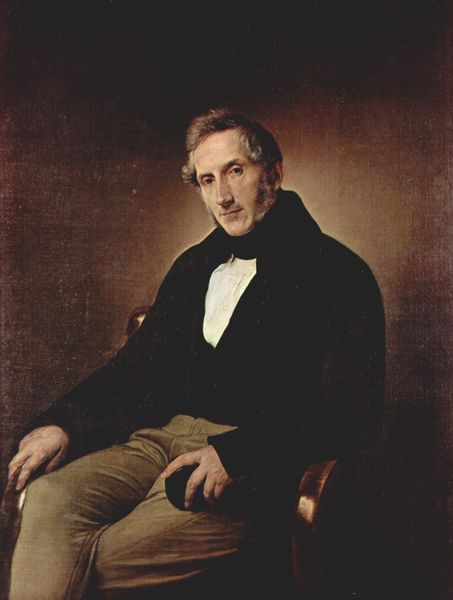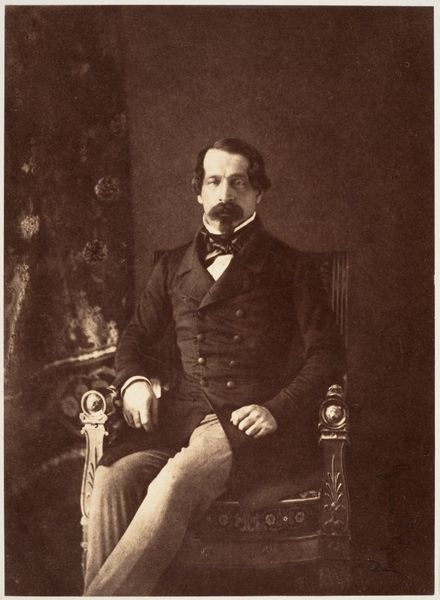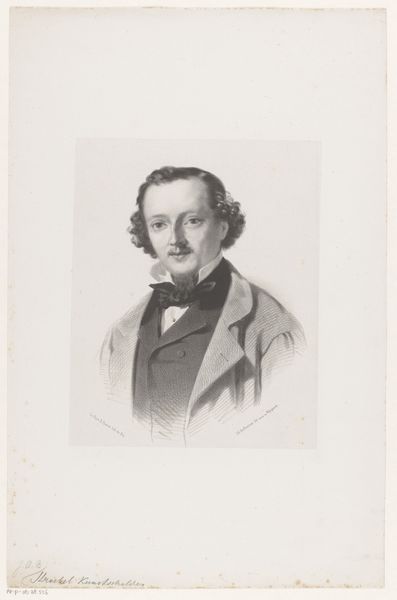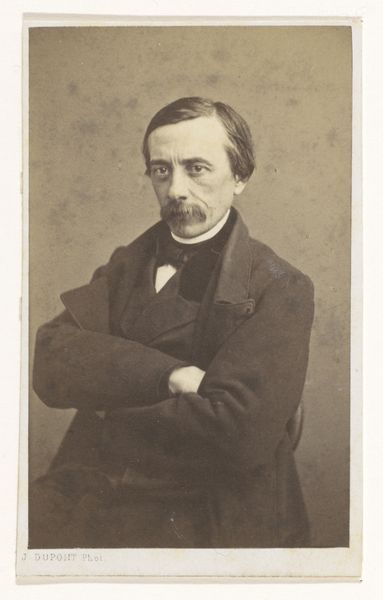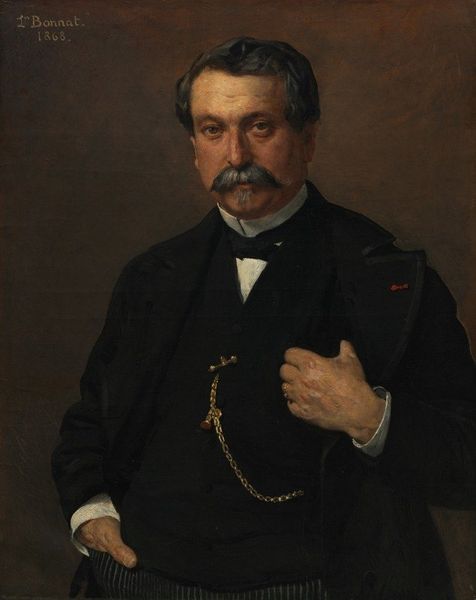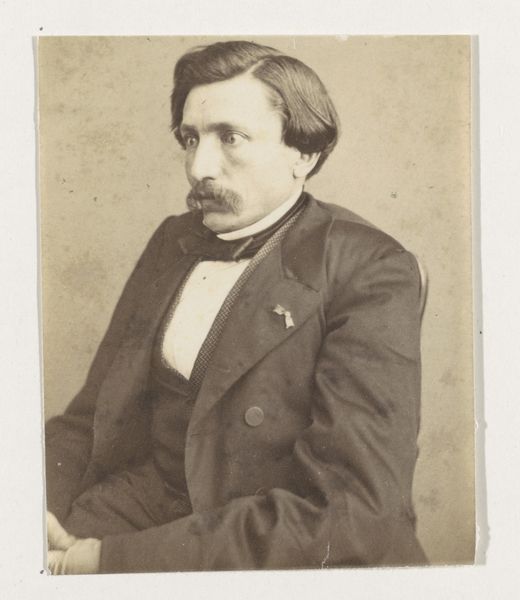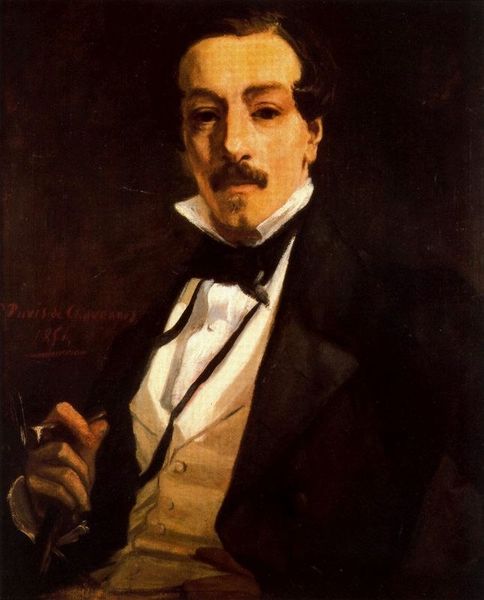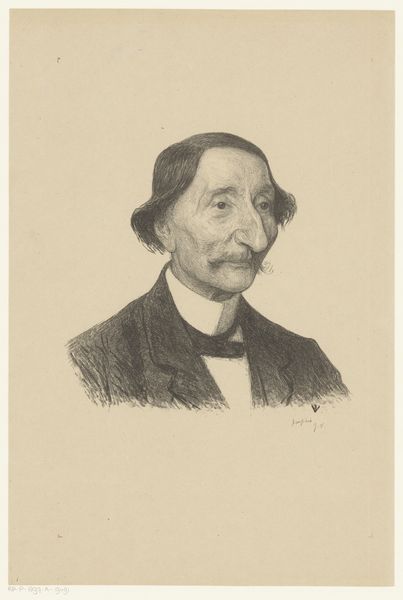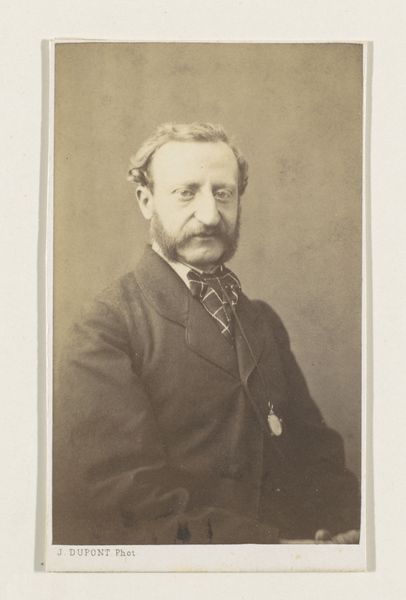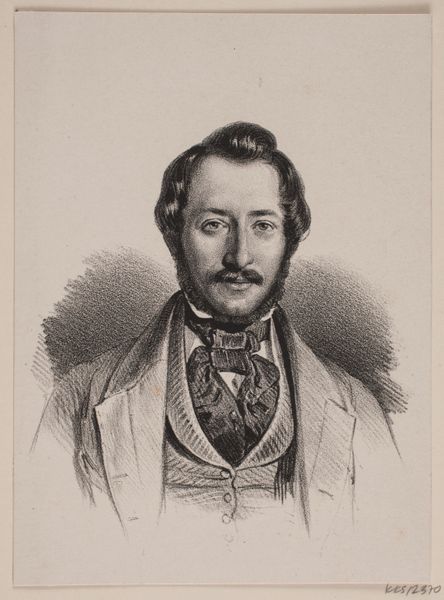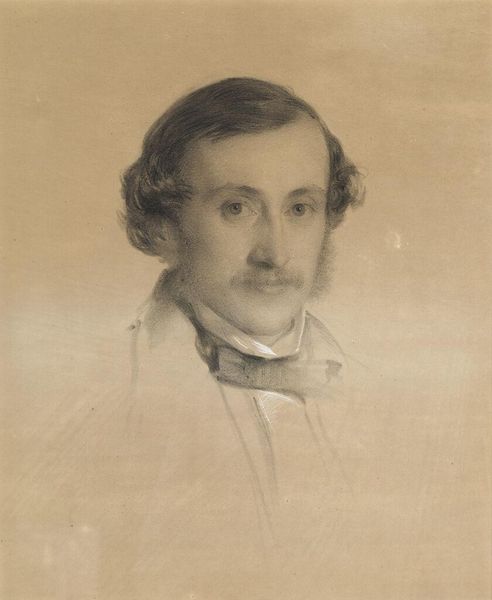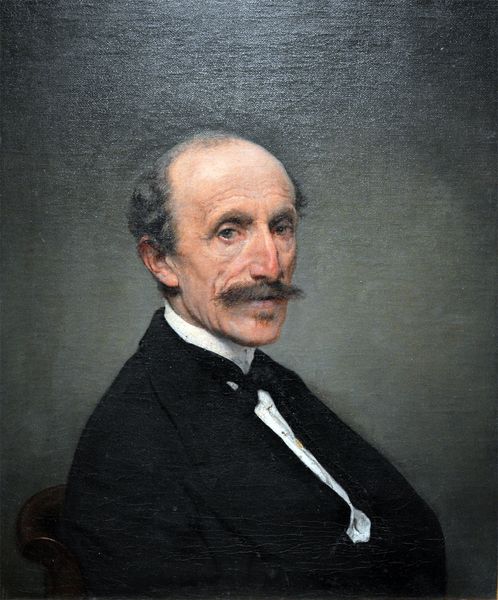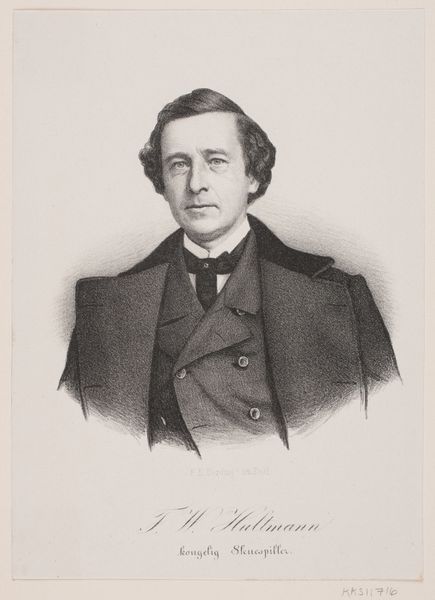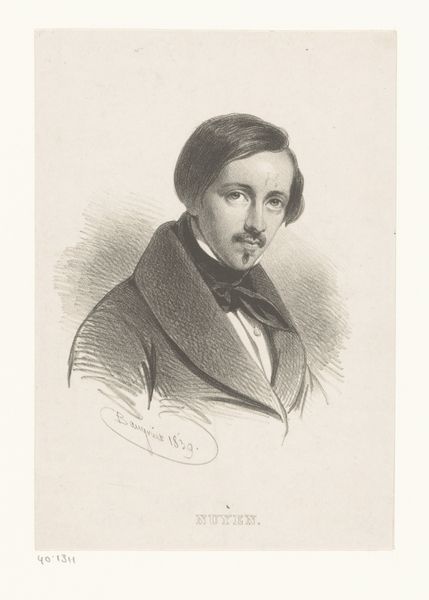
Dimensions: 118 x 92 cm
Copyright: Public domain
Curator: I find the formal aspects immediately striking. Hayez's “Portrait of Massimo d’Azeglio,” painted in 1860, uses a restricted palette that focuses the eye intensely on the subject's face and hands. Editor: Yes, the darkness practically engulfs him. It almost feels claustrophobic, like he's trapped in the confines of his own respectability. One immediately senses a mood of serious reflection, even a kind of melancholy, typical of the Risorgimento's later disillusionment. Curator: Precisely. Note the meticulous rendering of the textures—the plush velvet of the chair, contrasted with the sharp tailoring of his coat. Hayez emphasizes surface, creating a tension between materiality and the psychological depth he suggests in d'Azeglio’s expression. Editor: And d’Azeglio's expression… he was a prominent figure in the Italian unification, but one who perhaps grew weary of the compromises required by politics. I read that hesitation in his eyes. Is this the face of a patriot, or one wrestling with his own legacy? Curator: His gaze directs our own reading. D'Azeglio seems caught between his public role and private introspection. The composition invites an interesting investigation into the structural relationship between portraiture and power. Editor: I'd argue that power is subtly interrogated here. We are invited to see a person wrestling with his era. Hayez does capture something of the complexities involved in shaping national identity in the crucible of war and revolution. It's not just a celebration of unification, it's an invitation to grapple with its aftermath. Curator: An intriguing perspective, although one must appreciate that Hayez’s brilliance lies also in capturing d’Azeglio's character. It's not overt political messaging so much as capturing inner depths, as perceived. Editor: Perhaps. What resonates is Hayez's portrait as a record of how historical processes shape inner lives. It shows the psychological costs often unseen within triumphant national narratives. Curator: Agreed. An important, visually rich reflection on an individual's role within the grand sweep of history. Editor: A very interesting piece—one to make you ponder on the weight of both personal and collective experience, for sure.
Comments
No comments
Be the first to comment and join the conversation on the ultimate creative platform.
